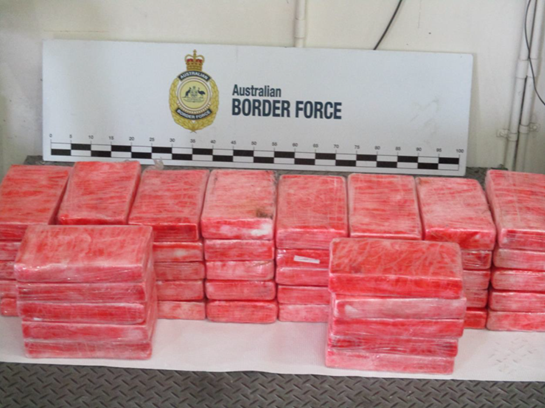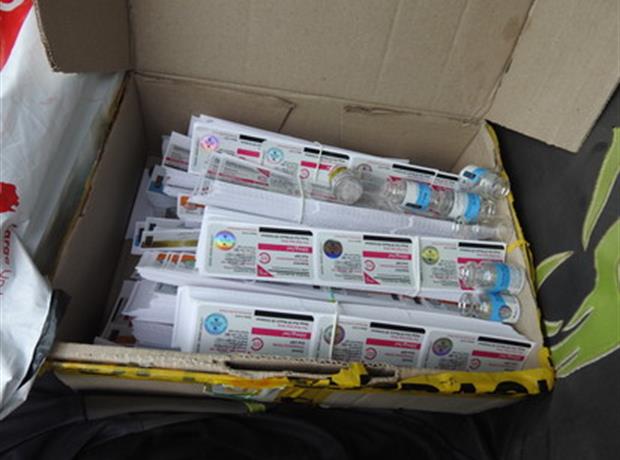The duty rates for alcohol varies depending on its exact specifications, however to give you a general idea most beers made from malt attract a duty rate of $49.90* per litre or alcohol content by which it exceeds 1.15%.
Beer Calculation Example:
The Duty and GST payable on a Carton of 24 x 375ml bottles of Beer valued at $70 with an alcohol content of 4.9% would be calculated as follows:
If the Customs value (CV) of the Beer = $70.00
The dutiable Litres of Alcohol (La) is 4.9% – 1.15% = 3.75%
The Litres of Alcohol (La) content is 24 x 0.375L x 3.75% = 0.3375 La
Therefore, the duty rate of $49.90/La x 0.3375 La = $16.84 (Payable)
International transport and insurance or postage (T&I) = $50.00
Value of the Taxable Importation (VoTI) = (CV + Duty + T&I) = $136.84
Goods and Services Tax (GST) @ 10% of the VoTI = $13.68 (Payable)
Total Payable (Duty + GST) = $30.52
*Quoted rates are indicative and subject to change
We apply one of two possible exchange rates depending on whether the goods have already been paid for or not.
At the time of importation, if the importer has not already transferred payment to the overseas supplier for the goods then we use the customs exchange rate, which is the average of the four major banks at the date of valuation (usually exportation date) of the goods from the origin.
If the goods have already been paid for and you provide the payment remittance (e.g. T/T, Paypal Receipt, Credit Card Statement etc.) then we use the exchange rate that you paid for the goods on hence the Duty/GST is calculated based on the actual AUD amount you paid.
Yes. The law requires that all goods – whether second hand or new, commercial or private – be subject to the assessment of customs duty and GST and checked for community protection risks.
Duty and/or GST is only collected on imported goods where the value of the goods is above A$1000, OR where the goods include alcohol, tobacco or are prohibited/restricted products. Goods valued above A$1000 must be cleared through Customs by completion of a formal Customs Entry.
If you have received a Customs Notice then the shipper has already advised customs that your goods meet these criteria.
Yes. The law requires that all goods – whether second hand or new, commercial or private – be subject to the assessment of customs duty and GST and checked for community protection risks.
Once we finalise your clearance, all Customs/Government charges are automatically billed
to the same credit card you used online to submit your clearance request.
Gift are treated no differently to commercial consignments, the law requires that all goods, even gifts, over the value of AUD$1000 are subject to the assessment of customs duty and GST and checked for community protection risks. The value of a gift is assessed as the usual value that you would buy that item for in the country of origin.
Customs Duty is calculated as a percentage of the Customs Value (CV) of the imported goods. Depending on the product, the applicable duty rate can be anywhere from 0% to 10%, however the majority of goods attract a 5% duty rate.
Customs GST is calculated at 10% of the Value of the Taxable Import (VoTI). The VoTI is calculated by the addition of the Customs Value (CV) PLUS the Duty PLUS the value of the International Transport and Insurance (T&I).
Yes. However, as we don’t have anything to do with the local delivery of your goods, you will need to call Australia Post on 13 13 18 and advise them of your new delivery address. You will need to provide them with your 13-digit tracking number which will be listed on your Customs Notice in the “Article Number” field.
No. Customs only “pauses” your original delivery contact with the supplier, they don’t terminate it and initiate a new one, hence your goods will continue to be delivered in accordance with the original service level contract with which they were sent from the origin.
If you’re not home and your parcel requires a signature, then Australia Post will leave a yellow card in your letterbox and you will need to attend the post office nominated on the card to collect your consignment.



